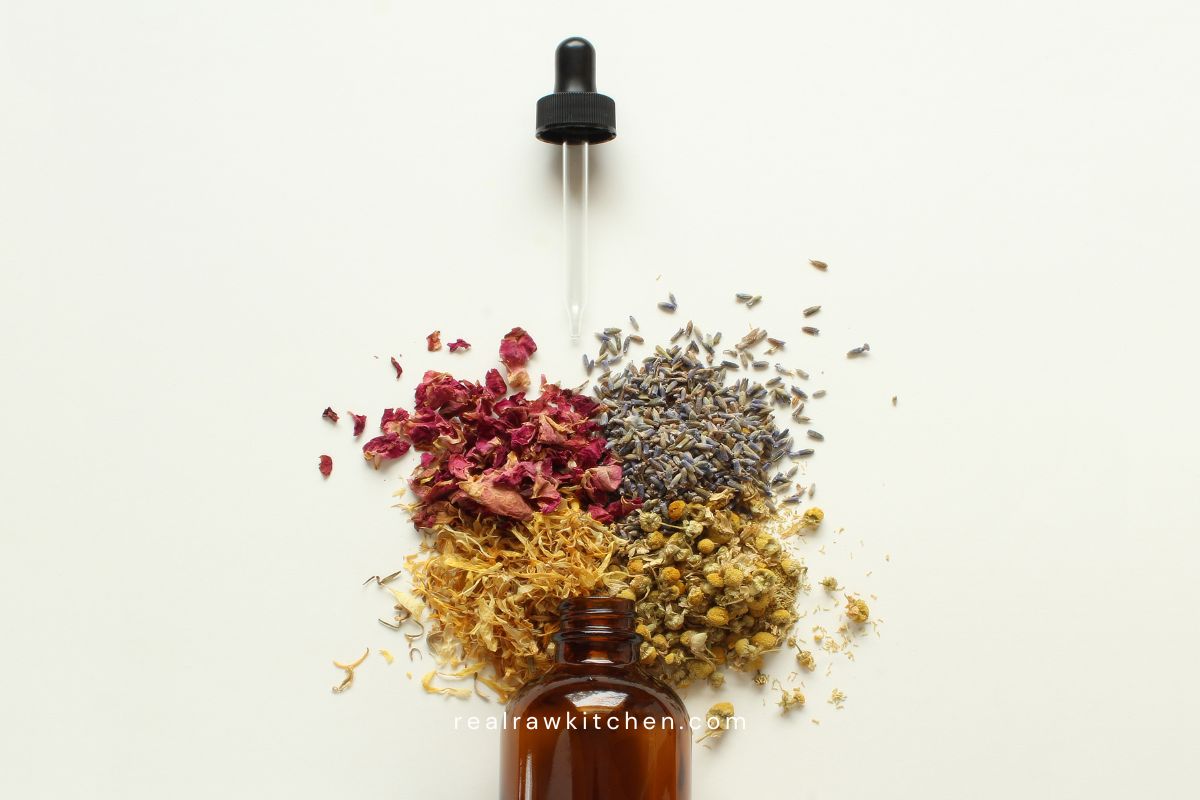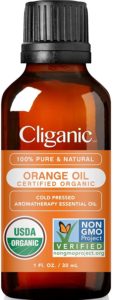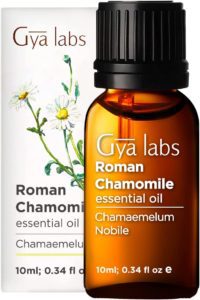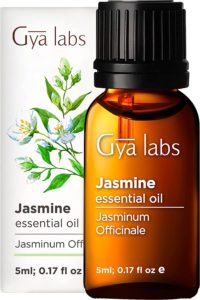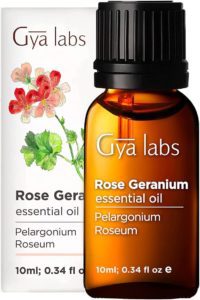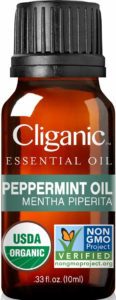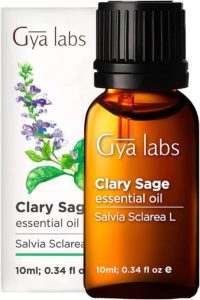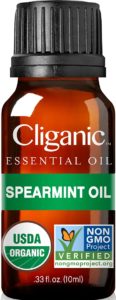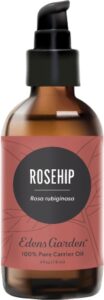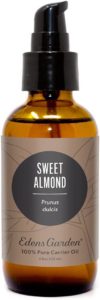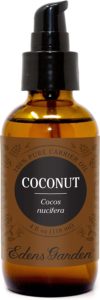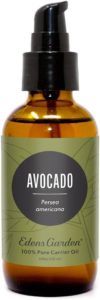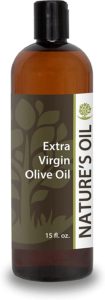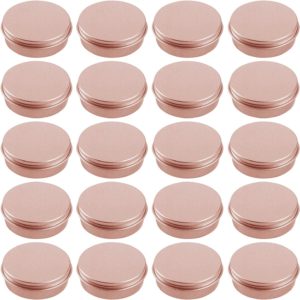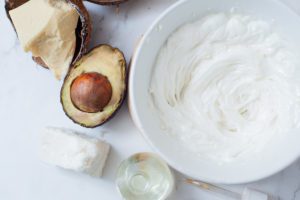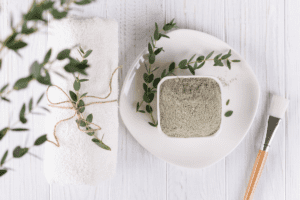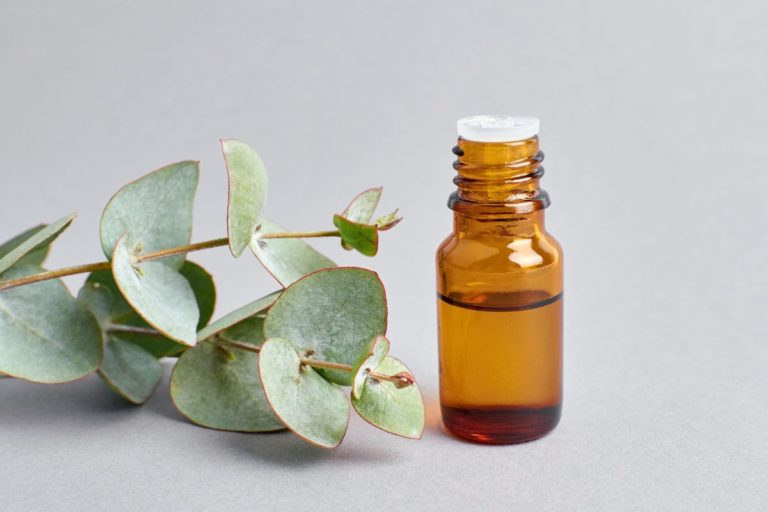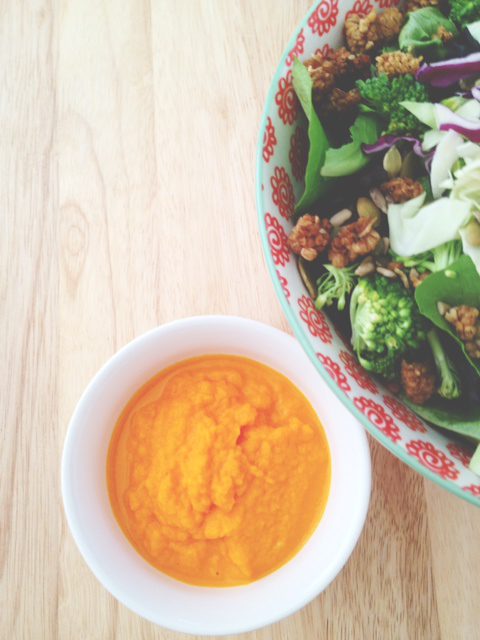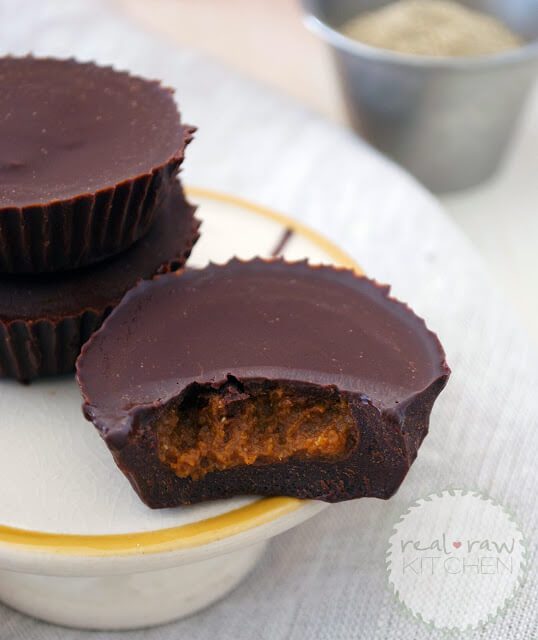If you’ve been here awhile then you know how obsessed I am with lip balms, essential oils, and all natural skincare products.
That’s because I’ve had a freakish decades-long episode of eczema that has, in recent years, turned into perioral dermatitis.
It blows, big time.
But I’ve found a few ways to help soothe my angry skin both from the inside and the outside. Along the way, I’ve sort of become an expert in lip balms, essential oils, carrier oils, and anything else that could soothe my bloody, cracked lips.
I’m sharing with you what I’ve learned along the way.
Safety Guidelines: Essential Oils To Avoid
Not all essential oils play well with the lip area. This is because the skin on the lips is thin and delicate, and it is more prone to irritation than other areas of the skin. This makes it more vulnerable to irritation from essential oils and other substances.
Many essential oils are what’s called “phototoxic oils”, meaning they can cause irritation in the sun. Since the lips are already a generally sensitive area, it’s best to avoid phototoxic oils on the lips altogether.
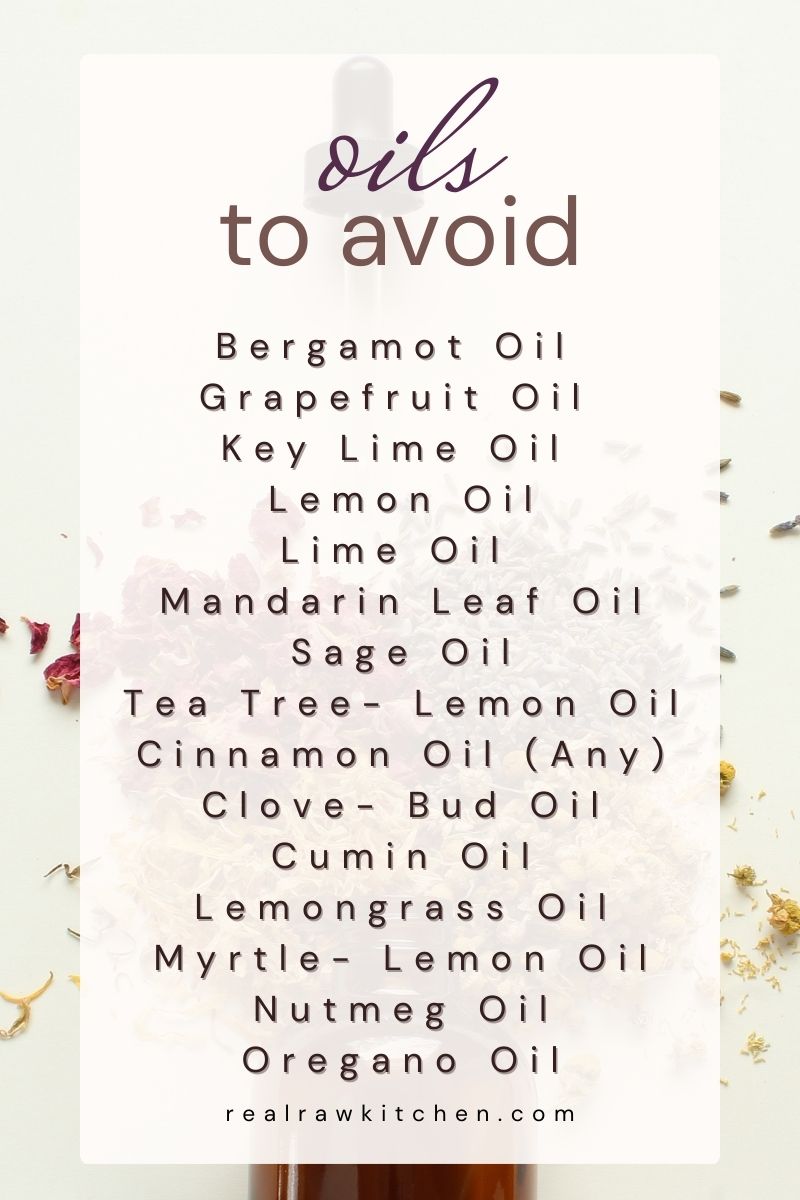

There are some essential oils that should be avoided when applying to the lips because they can be irritating or sensitizing. These include:
- Cumin oil: Cumin oil has been shown to be a skin irritant in some studies.
- Cinnamon oil: Cinnamon oil can be irritating to the skin and should be used with caution.
- Clove oil: Clove oil contains eugenol, a compound that can cause skin irritation and allergic reactions in some people. In addition, clove oil has a strong, pungent aroma that may be overpowering when applied directly to the lips.
- Lemon oil: Lemon oil (and all citrus oils) can be irritating to the skin, particularly when exposed to sunlight, and should be used with caution.
- Bergamot oil: Bergamot oil can be photosensitizing, which means that it can make the skin more sensitive to sunlight. It should be avoided on areas of the skin that will be exposed to sunlight.
- Grapefruit Oil: Grapefruit oil can cause photosensitivity, which means that it can make the skin more sensitive to sunlight. This can increase the risk of sunburn and other skin damage, particularly when applied to areas of the skin that will be exposed to sunlight.
- Key Lime Oil: You should avoid using key lime oil on the lips because it can be irritating and sensitizing to the skin, particularly when applied to the lips, and it may cause redness, itching, or other types of irritation. Key lime oil may also be photosensitizing, which means that it can make the skin more sensitive to sunlight, so it’s important to use caution when using this oil on the lips or other areas of the skin that will be exposed to sunlight.
- Lime Oil: Lime oil can be photosensitizing, which means that it can make the skin more sensitive to sunlight. This can increase the risk of sunburn or other skin irritation if the lips are exposed to sunlight after applying lime oil.
- Mandarin Leaf Oil: Mandarin leaf oil, also known as petitgrain oil, is an essential oil derived from the leaves of the mandarin orange tree. It is generally considered safe to use on the skin, but it should be avoided on the lips because it can be irritating and sensitizing.
- Sage Oil: Sage oil can be toxic when ingested, so it’s important to avoid using it on areas of the body where it could be accidentally ingested, such as the lips. In general, it’s best to be cautious when using essential oils on the lips or other sensitive areas, as they can be very potent and may cause irritation or other side effects if used improperly.
- Lavender Oil: Lavender oil should be avoided on the lips because it can cause irritation and allergic reactions. The skin on the lips is thin and sensitive, and applying lavender oil, which can be quite astringent, to the lips can potentially cause redness, itching, and even blistering in some people.
- Tea Tree Oil: Tea tree oil should be avoided on the lips because it can be irritating to this sensitive area. Tea tree oil is a potent essential oil that contains terpenes, which can cause irritation or allergic reactions when applied to the skin. It’s important to use caution when applying tea tree oil to the lips or any other sensitive areas of the skin, as it can cause redness, itching, and other side effects. If you are using tea tree oil on your lips or around your mouth, it’s important to dilute it with a carrier oil, such as coconut oil or jojoba oil, to reduce the risk of irritation.
- Cinnamon Oil (Any): Cinnamon oil contains a compound called cinnamaldehyde, which can be irritating to the skin, particularly in high concentrations.
- Lemongrass Oil: Lemongrass oil contains citral, which is a compound that can cause skin irritation and allergic reactions in some people. In addition, lemongrass oil can be photosensitizing, which means that it can make the skin more sensitive to sunlight.
- Myrtle-Lemon Oil: Myrtle lemon oil is a potent essential oil that is derived from the leaves of the myrtle plant. It has a strong, citrusy scent and is known for its astringent properties. However, it can also be very drying to the skin and may cause irritation or sensitivity when applied to the lips.
- Nutmeg Oil: Nutmeg oil contains compounds that can be irritating to the skin and mucous membranes, and it has been shown to cause allergic reactions in some people. In addition, nutmeg oil can be toxic if ingested in large quantities, so it is important to handle it with care and avoid using it on areas of the skin that may come into contact with the mouth.
- Oregano Oil: Oregano oil contains a high concentration of phenols, which are chemical compounds that can cause skin irritation, redness, and burning. In addition, oregano oil can be very strong and may have a strong, pungent aroma that can be unpleasant. For these reasons, it is generally recommended to avoid using oregano oil on the lips or other sensitive areas of the skin.
It’s important to use caution when using essential oils, as they can be very potent and can cause irritation or other side effects if used improperly.
Always dilute essential oils before applying them to the skin, and consult a healthcare professional if you have any concerns about using essential oils on your lips or other sensitive areas.
Best Essential Oils For Lips
I love using essential oils for anything and everything (don’t we all?!). They smell good and they just do so damn much! Being concentrated, and therefor extremely potent, most pure essential oils have some kind of anti bacterial, anti fungal, and anti inflammatory properties.
However, it’s important to note that more research is needed to fully understand the potential benefits of essential oils for the skin, and they should be used with caution, as they can be irritating to some people.
Based on the current research, these are generally the best essential oils for lips.
Orange Essential Oil
There is some research that suggests that orange essential oil may have benefits for the skin, including the lips. For example, one study found that orange essential oil has antimicrobial properties, antioxidant, anti fungal, and antibacterial properties, which may help to reduce inflammation and protect the skin from damage.
Though most citrus oils are phototoxic oils, orange essential oil is a low risk for phototoxicity, making it unusually gentle.
Chamomile Oil
There is some research suggesting that Roman chamomile essential oil may have beneficial effects on the skin, including reducing inflammation and promoting healing. For example, a study published in the Journal of the German Society of Dermatology found that German chamomile essential oil had anti-inflammatory effects when applied topically to the skin for dermatitis-like symptoms.
Jasmine Essential Oil
Current research suggests that jasmine essential oil may have a number of potential benefits for the skin, including antibacterial, antimicrobial, anti-inflammatory, moisturizing and regenerating effects. One study found that jasmine essential oil was effective at soothing psoriasis, while another study found that sped up healing of wounds. These properties of jasmine essential oil may be helpful when using it on the lips, as it may help to heal and protect the lips from damage.
Rose Geranium Essential Oil
Current research suggests that rose geranium essential oil may have a number of benefits for the skin. Some studies have found that rose geranium oil may have anti-inflammatory, antibacterial, and antioxidant properties, which may make it useful for a range of skin concerns, including dry, chapped lips (and aging skin!). In particular, rose geranium oil may help to reduce inflammation, moisturize the skin, and protect against free radical damage.
Peppermint Essential Oil
Peppermint oil has been shown to have a cooling and soothing effect on the skin, and it may help to reduce itching (um hello perioral dermatitis), inflammation and irritation. Peppermint oil may also have antimicrobial properties, which means that it may be helpful in preventing or treating infections of the skin. These properties of peppermint oil may make it beneficial for use on the lips, particularly for people with dry, chapped, or inflamed lips.
Clary Sage Essential Oil
According to current research, clary sage essential oil may have a number of benefits for the skin when applied topically. Some studies have found that clary sage oil has anti-inflammatory and anti bacterial properties. It may also have a calming effect on the skin and help to balance oil production. However, it’s important to note that clary sage oil may be irritating to some people, particularly those with sensitive skin, and it should be used with caution.
Spearmint Essential Oil
According to current research, spearmint essential oil may have several potential benefits for the skin. Some studies have found that spearmint essential oil has antibacterial, antioxidant, and anti-inflammatory properties, which may make it helpful for treating a variety of skin conditions. In particular, spearmint essential oil may be helpful for reducing inflammation, soothing irritated skin, and promoting healing.
These properties may make spearmint essential oil an effective option for use on the lips, as it may help to reduce irritation, moisturize dry skin, and protect against damage.
Try essential oils in other ways:
Best Carrier Oils For Lips
My personal fave is sweet almond oil. It’s the only oil that I’ve had a noticeable positive result from, but there are a lot of other carrier oils that are promising for irritated skin. According to current scientific research, some of the best carrier oils for lips include:
Rosehip oil
Rosehip oil is high in fatty acids and antioxidants, and it has been shown to be effective for moisturizing and protecting the skin. A study published in the Journal of Dermatological Treatment found that rosehip oil was effective for improving skin hydration and reducing the appearance of wrinkles and fine lines.
Sweet almond oil
Sweet almond oil is a popular choice for use as a carrier oil in lip care products because it is lightweight, easily absorbed, and has a number of potential benefits for the skin. According to existing research, sweet almond oil is high in fatty acids and antioxidants, which may help to moisturize and protect the skin. It has also been shown to have anti-inflammatory properties, which may help to reduce redness and irritation.
Sweet almond oil is relatively gentle and is generally well-tolerated by most people, making it a good option for use on sensitive skin, including the lips.
Coconut oil
Fractionated coconut oil has a high content of fatty acids and is known for its moisturizing and nourishing properties. A study published in the Journal of Lipid Science and Technology found that coconut oil was effective for improving skin hydration and reducing the appearance of fine lines.
Avocado oil
Avocado oil is high in fatty acids and antioxidants, and it has been shown to be effective for moisturizing and nourishing the skin. A study published in the Journal of the American Academy of Dermatology found that avocado oil was effective for improving skin hydration and reducing the appearance of wrinkles.
Olive oil
Olive oil is high in fatty acids and antioxidants, and it has been shown to be effective for moisturizing and nourishing the skin. A study published in the Journal of Dermatological Science found that olive oil was effective for improving skin hydration and reducing the appearance of wrinkles.
Overall, these carrier oils are rich in nutrients and have been shown to be effective for moisturizing and nourishing the skin, which may make them good options for use on the lips.
Simple Homemade Lip Balm To Soothe Chapped Lips
Because of my perioral dermatitis, I have constant chapped lips (especially in the days leading up to menstruation). Sometimes, when things get really bad, my lips begin to crack and bleed. It’s awful. During those points, I apply straight Vitamin E to my cracked lips because nothing else will soothe them.
You can see my DIY oil cleanser recipe for sensitive skin, where I share pictures of outbreaks and progress 🙈
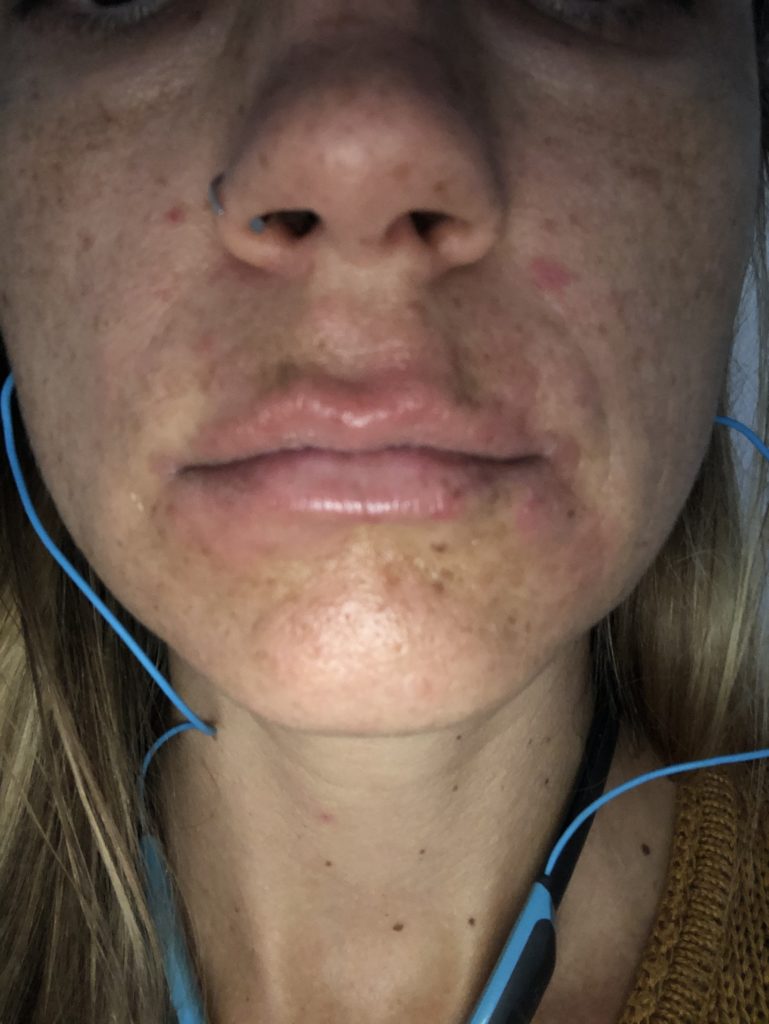

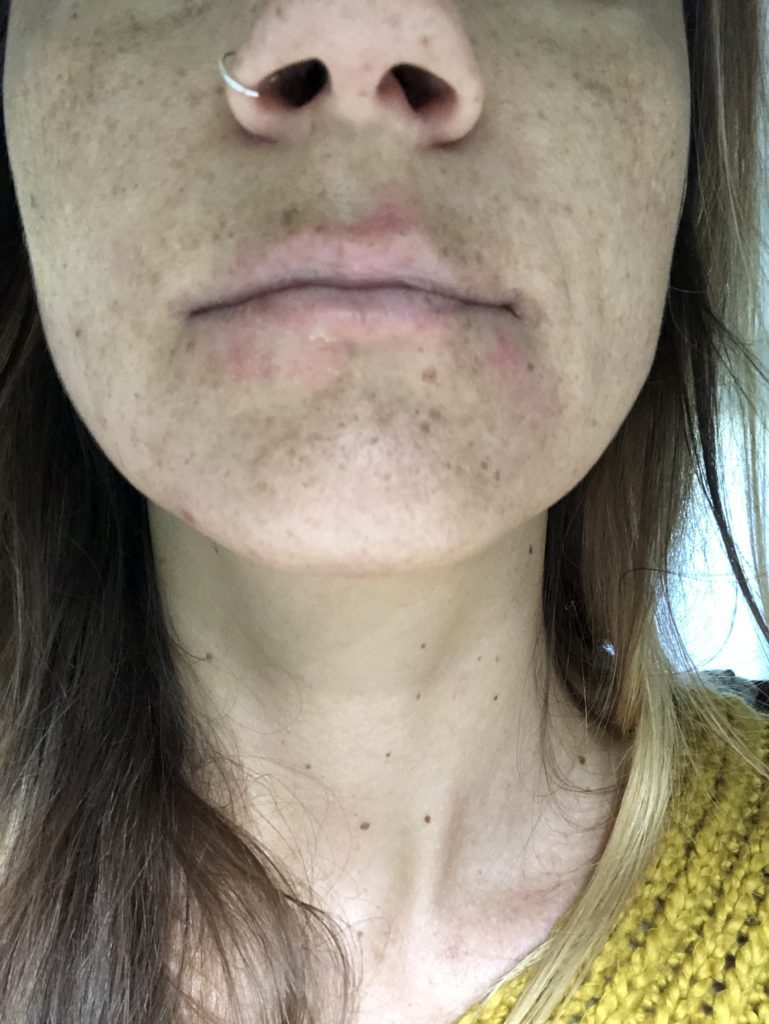

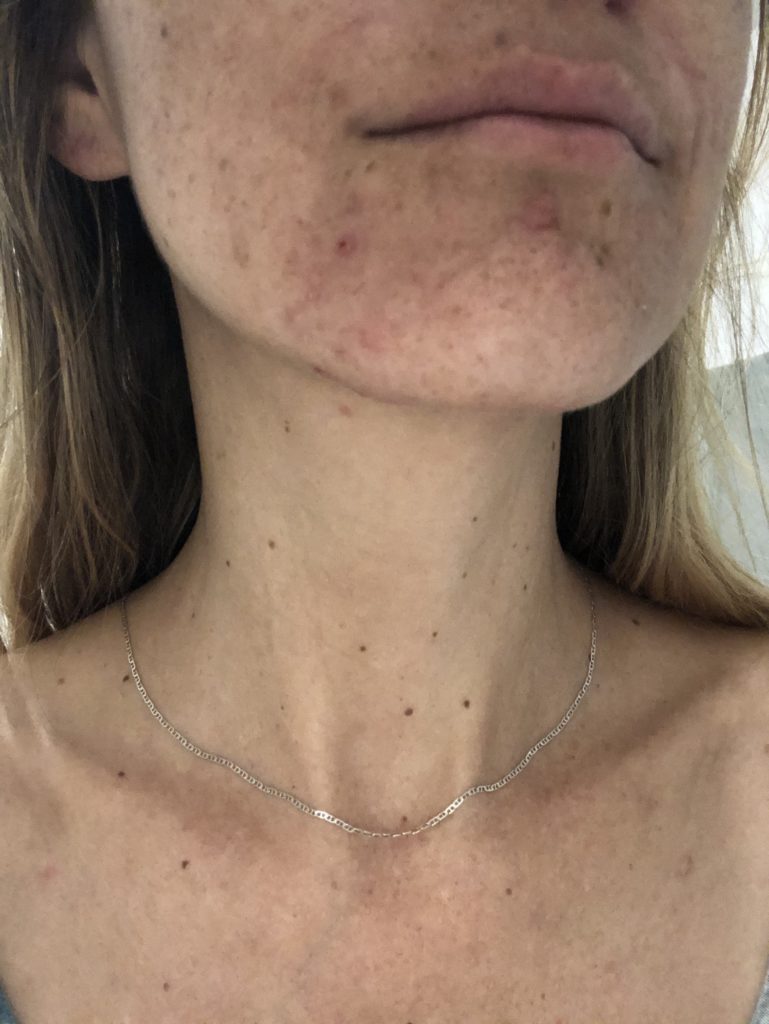

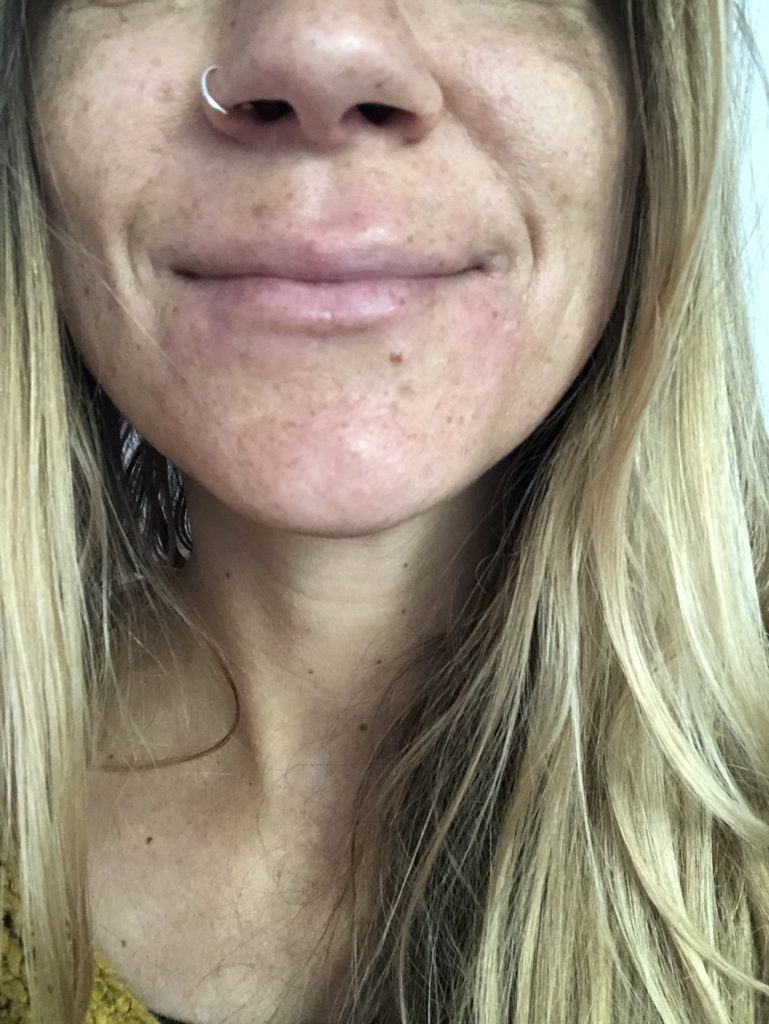



(When I get an outbreak, I can’t buy lip balm because store bought lip balms just burn too much. Recently, I had to buy a bottle of Vitamin E capsules during a recent road trip through the US because it was the only thing that would soothe an untimely outbreak 😖)
In between the bad outbreaks, I rely on my own homemade lip balm that I know won’t irritate my lips.
Here is a simple and gentle homemade lip balm recipe using all natural ingredients and one of the beneficial essential oils that we recently discussed:
Ingredients:
- 1 tablespoon of coconut oil
- 1 tablespoon of shea butter
- 1 tablespoon of beeswax
- 1 tablespoon of sweet almond oil
- 5-10 drops of jasmine essential oil (or another essential oil of your choice)
Instructions:
- In a small saucepan, melt the coconut oil, beeswax, shea butter and sweet almond oil over low heat, stirring occasionally.
- Once the ingredients are melted, remove the pan from the heat and stir in the jasmine essential oil.
- Pour the mixture into a small, clean lip balm container and allow it to cool and solidify.
- To use the lip balm, apply a small amount to your lips as needed.
This homemade natural lip balm recipe is made with plant-based ingredients* that are gentle and nourishing for the lips. The coconut oil, beeswax, and sweet almond oil will help to moisturize and protect the skin, while the jasmine essential oil adds a soothing and healing effect. This lip balm should keep for several months when stored in a cool, dry place. Enjoy!
*Beeswax is not plant-based. If you do not want to use beeswax, then use an extra tablespoon of shea butter instead.
Which lip balm containers to use
I really like small aluminum lip balm containers (pronounced aluminium in Australia 😂) because they are shallow and wide, making it easy to get my grubby finger in there. Also, if they melt in the intense Australian heat, then the lip balm ingredients tend to flatten out nicely… unlike when they’re in lip balm tubes.
